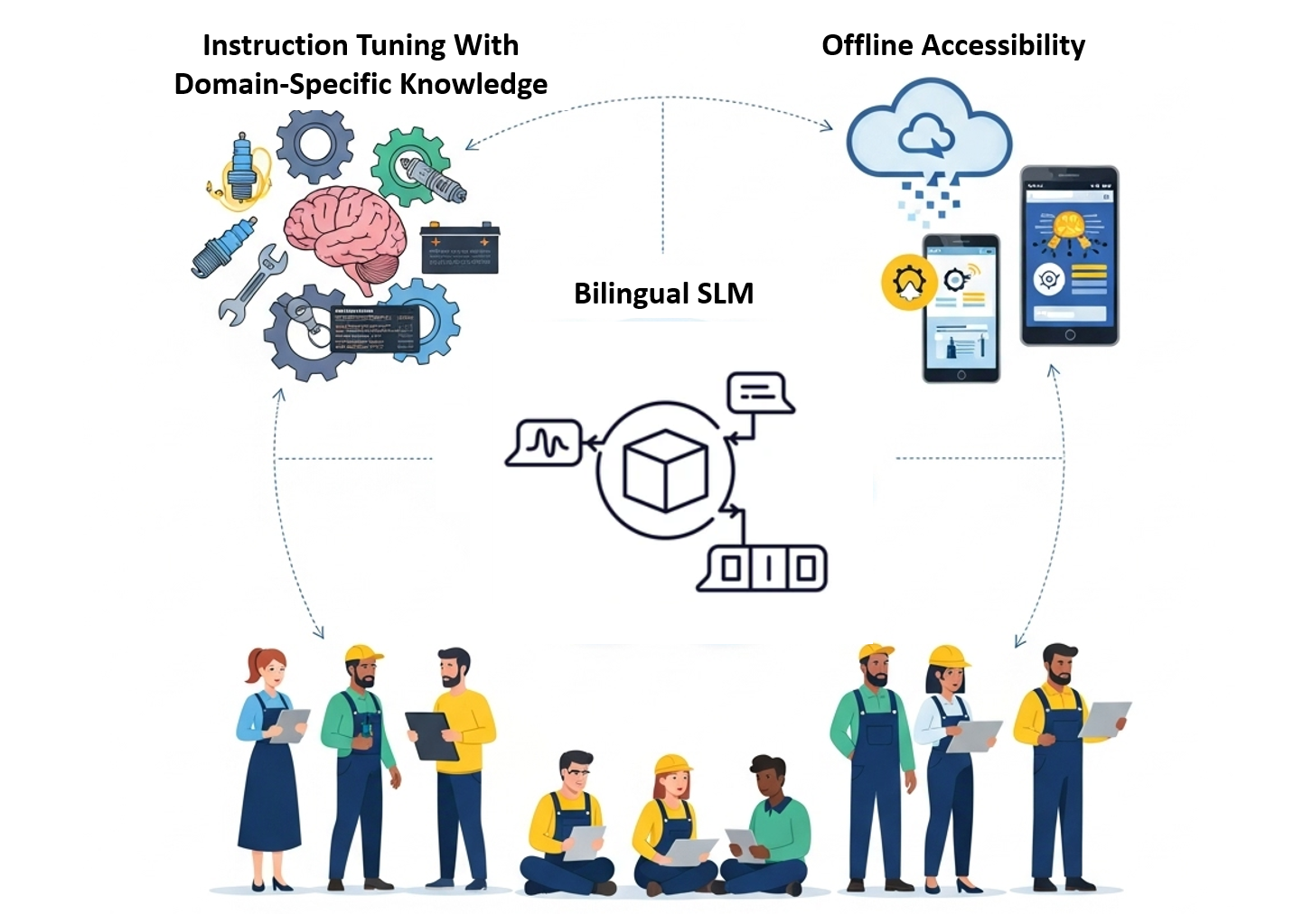HunarmandAI: Culturally-Aware Intelligent Tutoring for Low-Literacy Urdu Speakers
HunarmandAI is an intelligent tutoring system designed specifically for Pakistani auto electricians who often struggle with limited access to training resources due to low literacy levels and language barriers. While most digital platforms and AI tools are dominated by English or highly formal Urdu, the everyday language spoken in workshops is far more informal, localized, and mixed with English technical terms. HunarmandAI bridges this gap by introducing a bilingual Urdu-English small language model (SLM) that can understand and respond in a way that feels natural to electricians. By embedding specialized automotive electrical knowledge directly into the model, the project creates a culturally and linguistically accessible tutor that works entirely offline, ensuring usability even in areas with little or no internet connectivity.

This project pushes the boundaries of what small language models can achieve by focusing on reasoning, accessibility, and edge deployment. Unlike general-purpose chatbots, HunarmandAI is fine-tuned with instruction-following datasets, step-by-step reasoning examples, and domain-specific content derived from real-world resources used by technicians. Through methods like instruction tuning, chain-of-thought optimization, and reinforcement learning with human feedback, the model is trained not only to provide correct answers but also to explain its reasoning in clear, easy-to-follow steps. This makes the tutor much more than just a Q&A tool. It becomes a practical guide that teaches problem-solving, repair techniques, and diagnostic skills in a way that mirrors how electricians actually work.

HunarmandAI has a strong social and economic impact as well. It empowers auto electricians from lower and lower-middle-class backgrounds to learn independently, improve their craft, and enhance their earning potential without relying on costly training centers or constant internet access. At the same time, it contributes to AI research by demonstrating how small language models can be adapted for reasoning-rich, domain-specific tasks on low-power devices. By releasing the model, dataset, and mobile app openly, the project also lays a foundation for future culturally-aware AI tutors in other vocational fields, advancing digital inclusion and supporting sustainable skill development in underserved communities.
Faculty
-
Dr. Muhammad Moazam FrazDr. Muhammad Moazam Fraz
-
Dr. Junaid YounasDr. Junaid Younas
Students
-
Muhammad Nabeel
-
Hafiza Adeela Arif
-
Abubakar Khan
